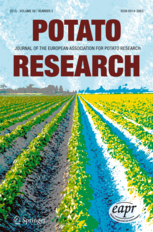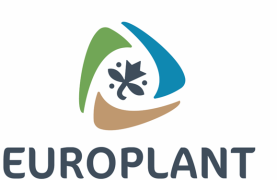
The European Association for Potato Research (EAPR) publishes a journal, Potato Research, which includes original scientific contributions on both fundamental and applied research on potatoes, review articles and topics of general interest. It also contains Association news and reports on section meetings (including abstracts of papers presented).
A volume of the Journal (usually approximately 450 pages), consists of four issues, published in the same year. Submission of manuscripts is exclusively online via a web-based electronic submission and tracking system available at https://www.editorialmanager.com/potr
- EAPR Members have online access to Potato Research (use the EAPR member login page)
- A list of addresses of editors of ‘Potato Research’
- Contents of ‘Potato Research’ can be found at Springerlink
- Instructions for authors
- Any comments regarding the publication and distribution of Potato Research should be addressed to EAPR
Springer Link















